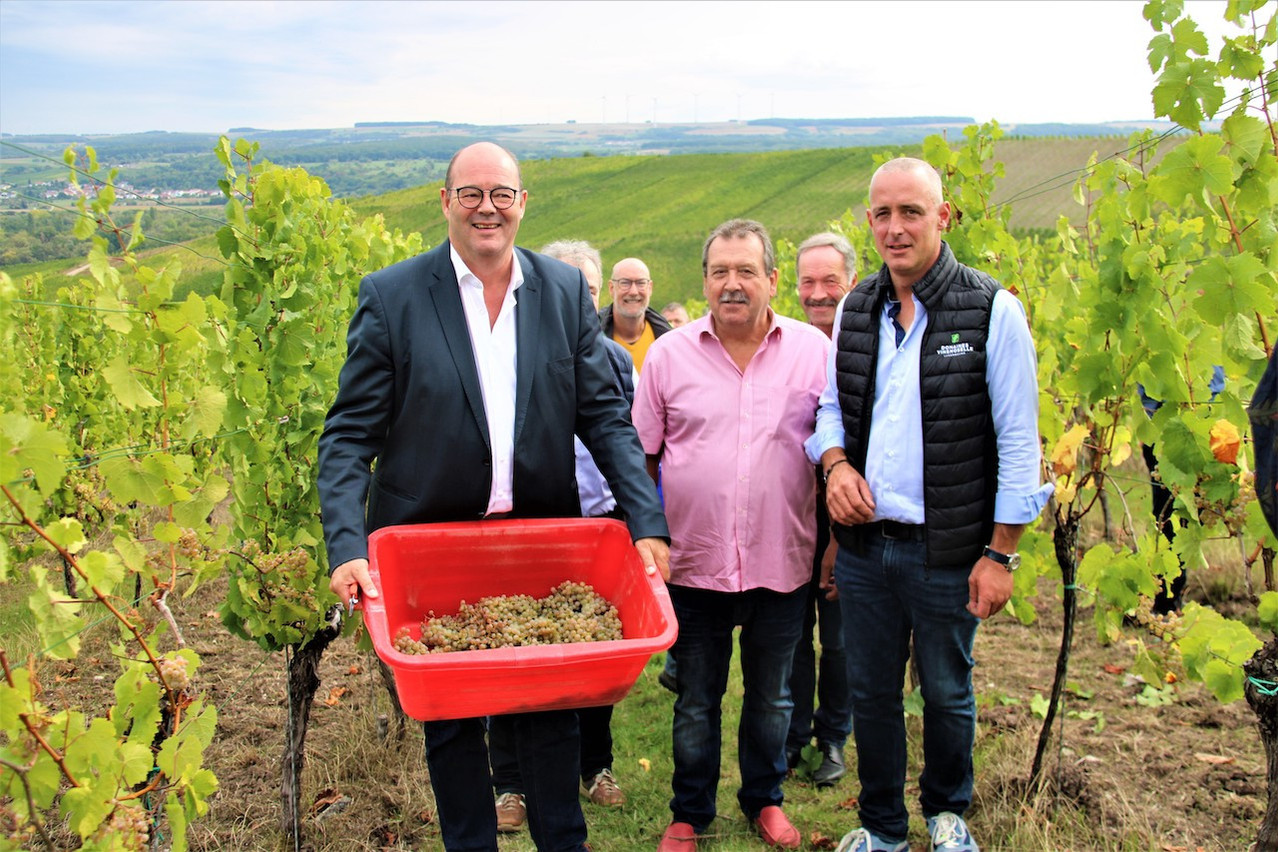Although 2022 has been marked by periods of extreme drought and heat and a rainfall deficit of up to 400mm along the Moselle, winemakers in the region are nevertheless satisfied with the harvest so far. Agriculture minister (LSAP) was in the region on Tuesday to visit vineyards in Wellenstein.
A statement from the minister explained that radiant sunshine throughout the summer has strengthened the ripening of the grapes and is reflected in their colour and taste. The heat also accelerated the development of the vines and advanced the start of the first crémant harvest to the week of 22 August, almost a full month earlier than usual.
The 2022 vintage promises to be excellent, fruity and tasty, with higher alcohol content than usual, the ministry says. However, the quantities will be lower because of the drought.
Winemakers work with about 1,000 seasonal winemakers, most of whom come from neighbouring countries and eastern Europe. Some pickers have been mobilised through a renewed collaboration between the Wine Institute (IVV) and employment agency Adem.
Luxembourg wines and crémants have continued to diversify and focus on excellence
Haagen offered his congratulations. “I am happy to share the peak of the harvest with our winemakers and proud to know that despite a historic drought, the 2022 vintage promises to be excellent! Viticulture is one of Luxembourg’s great entrepreneurial, societal and festive traditions. Luxembourg wines and crémants have continued to diversify and focus on excellence,” he said.
Experimenting with southern varities
Haagen also praised the Wine Institute’s work and innovation. It has been testing the development of new grape varieties for the Moselle to adapt to changing climate conditions. The IVV has been experimenting with thermophilic grape varieties from the southern regions that usually grown in relatively high temperatures. Varieties such as Primitivo from Italy, Touriga Nacional from Portugal, and even Tempranillo from Spain and the characteristic Syrah of the Côtes du Rhône have been grown in Luxembourg.
Indeed, the minister underlined the good cooperation between the Wine Institute and the Luxembourg Institute of Science and Technology on research projects aimed at making wine production more sustainable and more resilient to climate change.
